6 Tower Houses Rise to the Tastes of Today
http://decor-ideas.org 12/01/2013 11:10 Decor Ideas
Although most of us are fortunate not to need to live in fortified houses today, there is something about tower houses that continue to capture our imagination. We often think of towers as dark, foreboding places where water continually seeps through the cold stone walls, chilling us to the bones. Or places where our eyes are permanently dilated because of the dim light permeating tiny windows. But many architects today are successfully reinterpreting tower houses for contemporary life.
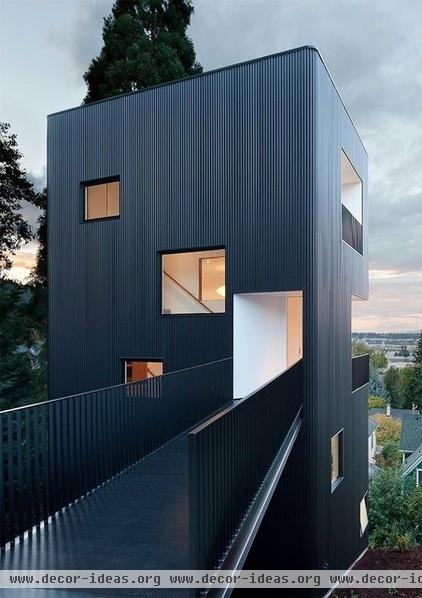
The materials used in construction are now no longer confined to stone (as in these old towers) and its structural limitations. The use of steel frame, timber frame and concrete has created myriad structural solutions. The choices allow for more flexibility in spatial planning, with virtually unlimited options for window openings, decks, roof terraces and staircases. They also allow for more possibilities with external finishes, which can include wood siding, plywood sheeting, sheet metal, composite panel systems, plaster or exposed aggregate concrete.
The Tower House in Portland, Oregon, is an unadorned, modernist, metal-clad tower set on a steep hillside and connected back to the land by a steel bridge. Its finish “gives the appearance of something ribbed, like a sweater,” says architect Benjamin Waechter. “It feels like a garment almost.”
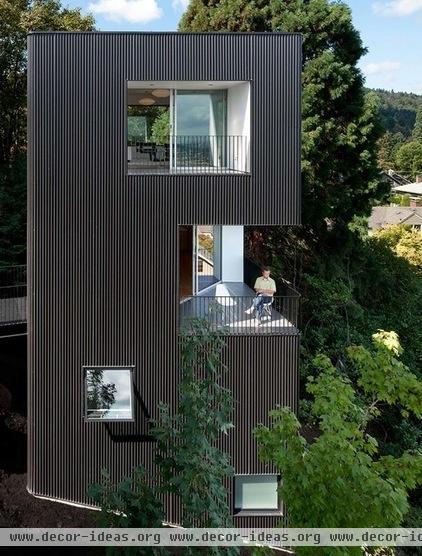
“The Tower House has a strong concept in a sense that it really can be thought of as three rooms and a building skin,” Waechter says. “The reason for doing that is to make a hierarchy between the main rooms and these support spaces.”
A living space is on top, the dining room and kitchen are in the middle, and the main bedroom is below.
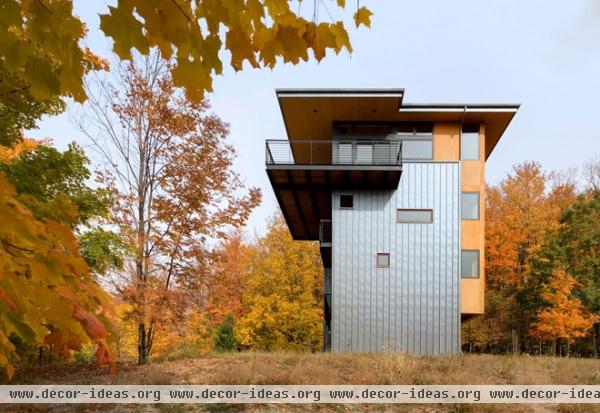
The nature of a tower raises practical issues to be addressed at the design stage. Tower homes invariably require rigorous spatial planning and difficult choices.
For example, tower dwellers may have to forgo some ancillary spaces or manage with smaller spaces. The practicality of vertical circulation between floors is another issue and usually confines most towers to three stories. How many people wish to spend their days running up and down tight staircases? Accessing the building at a middle level may alleviate this potential issue.
Balance Associates built the Glenn Lake Tower, shown here, on a wooded hilltop above a lake in Michigan. Two metal clad walls support a three-story plywood box suspended above the ground.
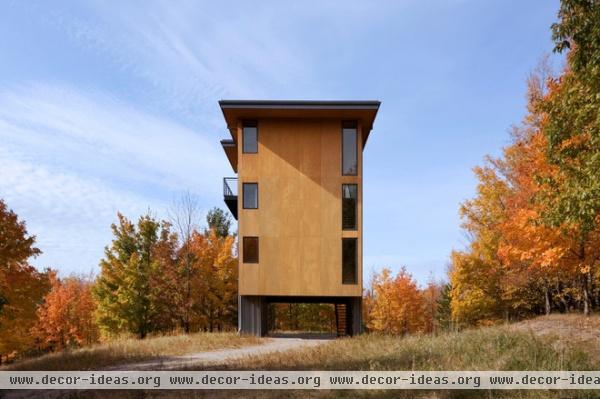
The primary living spaces stand above the dense surrounding woods to gain light, air and views.
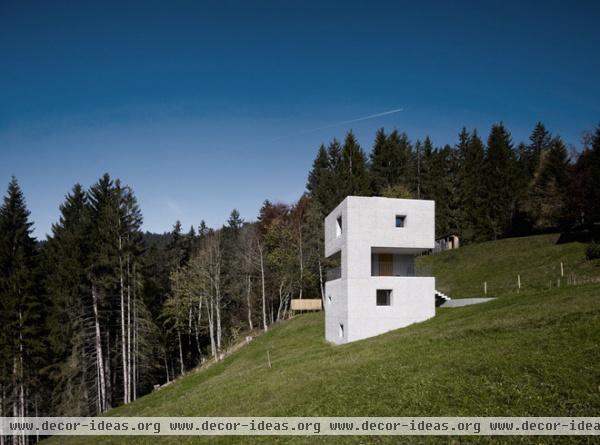
Managing tighter spaces in a tower is more than compensated by the breathtaking views some tower dwellers enjoy. This small, unpainted concrete tower in Austria, by Marte Marte Architects, sits delightfully on a steep, sloping hillside. Accessed via a pathway and a short flight of steps, it is truly an object in the landscape, unencumbered with outbuildings or car parking.
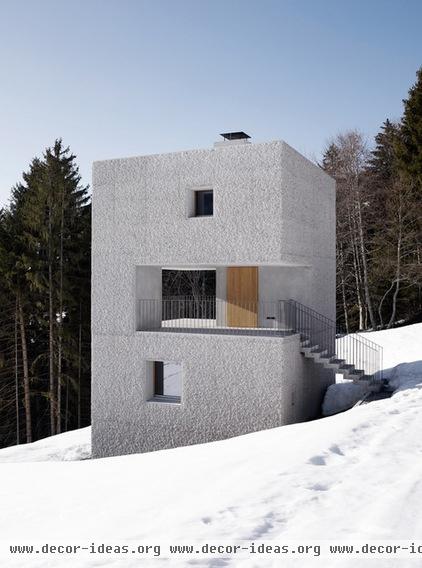
“Semantically speaking, this gesture of the tower creates archetypes of fortified structures and abstract computer figures in your mind’s eye, making the tower seem familiar and strange at once,” the architect says.
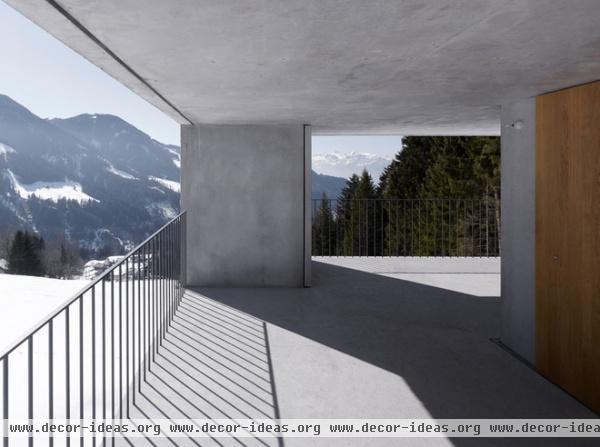
At the entry level, an open terrace within the building footprint provides a panoramic view.
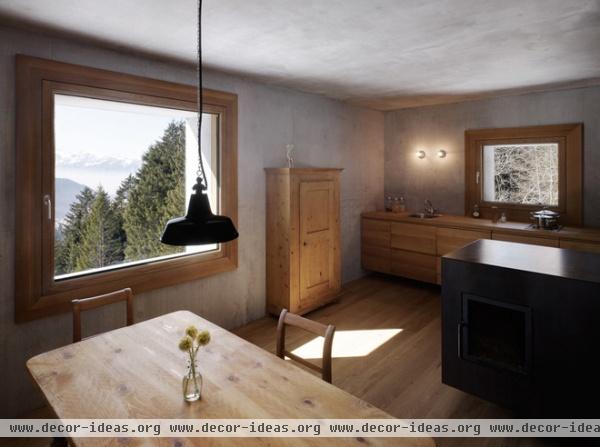
Oak-lined windows create framed landscape paintings inside.
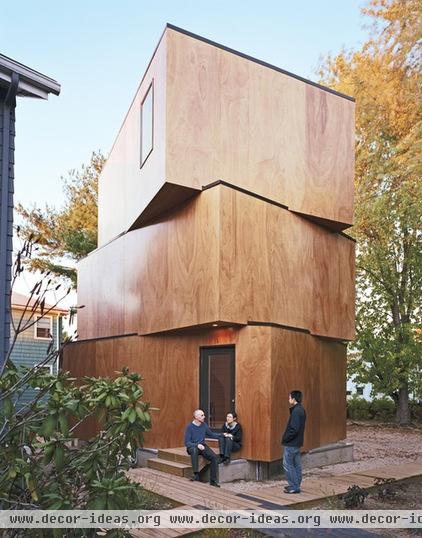
Tower houses are not all confined to isolated rural landscapes. Here’s a unique tower house — XS House, by uni architecture — that’s composed of three stacked and rotated plywood boxes. The house is in a crowded suburban plot and therefore was designed to address the need for privacy and for light.
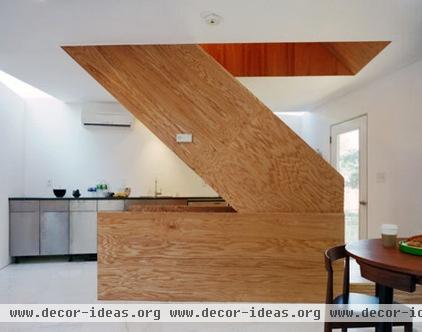
Despite the lack of large windows, the interior here is brightly lit by the single door and the corner roof light.
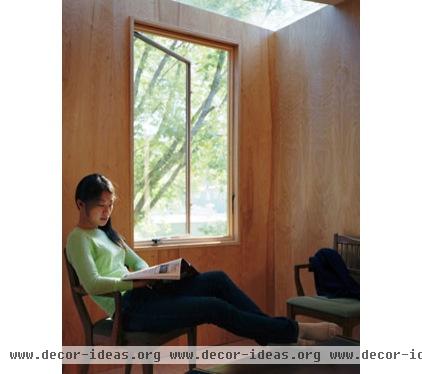
Four corner skylights draw natural light into the house, provide skyward views and maintain privacy.
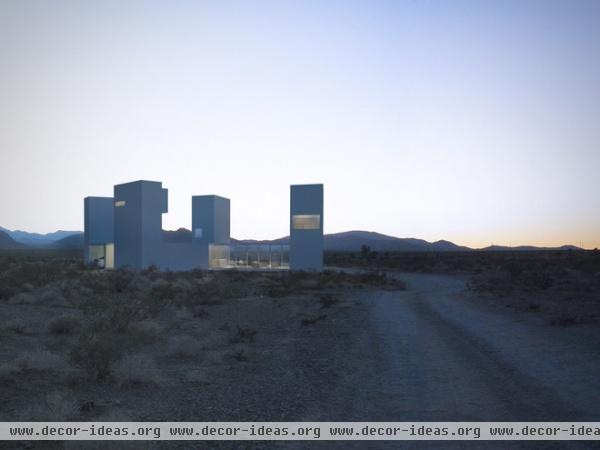
This is not quite a tower house per se, but rather a house composed of four towers. Rather than being planned according to a domestic functional program, the building was designed foremost as an instrument for intensifying a number of onsite phenomena.
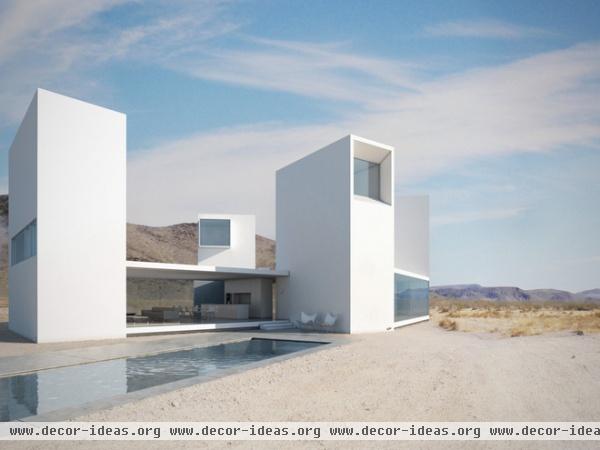
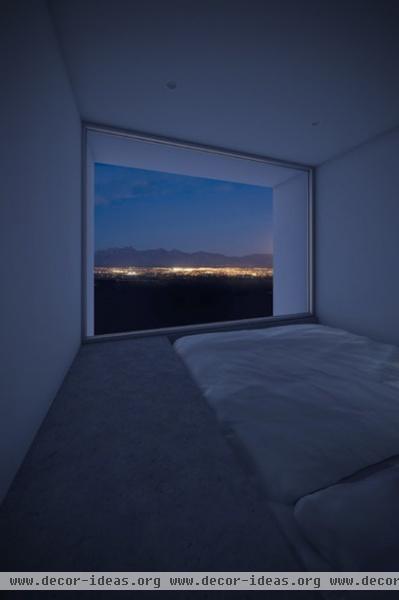
It was designed by Edward Ogosta Architecture in Coachella, California, as a weekend house. The four sleeping towers are oriented toward four “spatio-temporal viewing experiences”: the morning sunrise to the east, a mountain range to the south, evening city lights to the west and nighttime stars overhead.
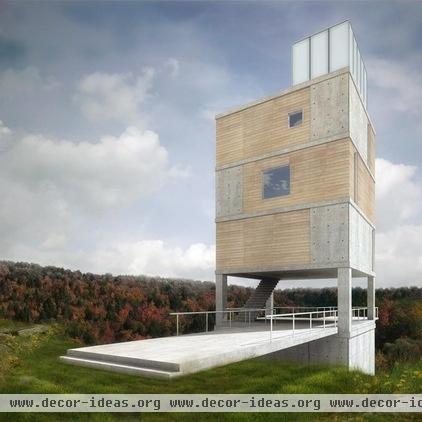
This is the Vertical House, by Axis Mundi. The entry is via a long and dramatic bridge to a viewing platform, from which one ascends a staircase into the house. The kitchen and dining areas are on the first level, the living area is on the second, and the main bedroom is above.
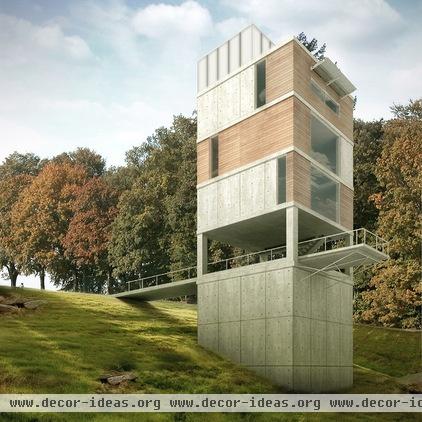
The architect says that the “Vertical House offers urban living on a rural site. The concept of a townhouse transposed to the country offers a unique solution to a difficult topology, and affords spectacular views of the surrounding countryside.”
More: Old tower houses adapted for contemporary living
Related Articles Recommended












